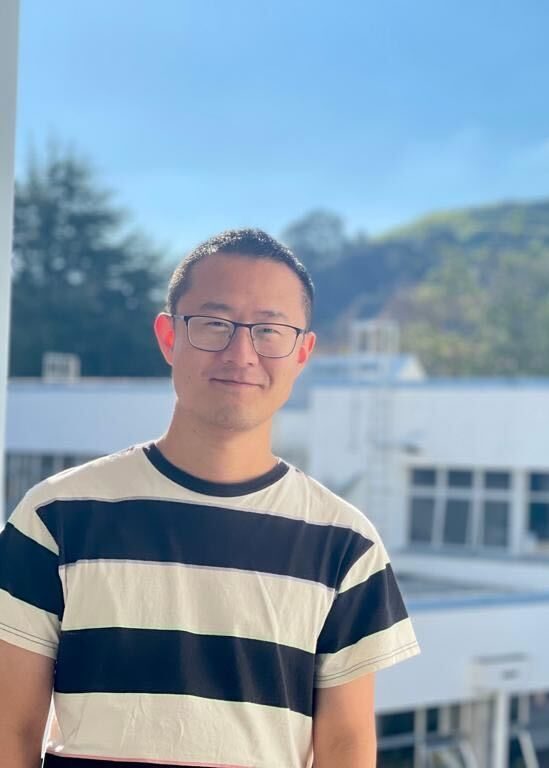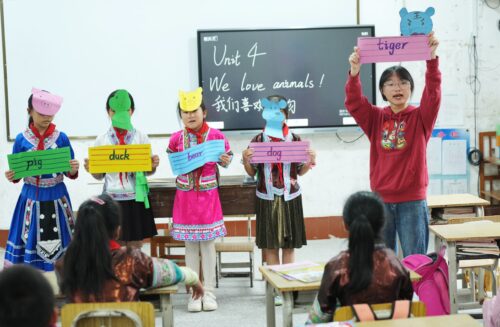Cuī Lè 崔乐 is a sociologist based in Auckland, New Zealand. He obtained his Ph.D. in education from the University of Auckland and has held academic positions at universities in China, Russia, and New Zealand.
In 2015, when Cui was working as a linguistics lecturer at the Guangdong University of Foreign Studies, he came out publicly as a gay academic to support college student and gay rights activist Qiū Bái 秋白, who sued the Chinese Ministry of Education over textbooks that described homosexuality as a “psychological disorder.”
Because of his outspokenness and advocacy efforts, Cui later received a penalty from his institution for “teaching irrelevant topics in class and causing a negative impact.” In 2017, he resigned from the position and moved to New Zealand to pursue his second Ph.D. The experience led him to start a research project on gay male academics in Chinese universities.
I recently spoke with Cui about his coming-out story and his research on the plight of China’s gay scholars. This interview was originally conducted in Chinese, and has been condensed and edited for clarity.
Could you briefly introduce your research?
My Ph.D. research focuses on gay academics’ workplace experience in China. From 2018 to 2019, I interviewed 40 gay men who were working or had previously worked in Chinese universities. Most of them were from big cities in eastern, southwestern, and southern China. In the research, I specifically look at how they manage their sexual identity in their institutions, how they interact with queer students, how they teach about LGBTQ issues in classes, and how they conduct queer-related academic research. The challenges and difficulties they were facing reflect how the Chinese government’s control over the higher-education system sustains and reinforces heteronormativity on college campuses.
How did you become interested in this topic?
After I was penalized by my school in 2015, I was forced to go back into the closet. I had to cautiously censor myself in my teaching, research, activism, and daily life on the campus. This experience drove me to reflect on how my life was informed by my sexuality, the institution, and the broader political climate. I realized that the only way that I could speak up and continue my activism was to go abroad and work in queer research. For this reason, I decided to make gay academics the main subject of my research when I started my Ph.D. in New Zealand.
Is it possible for gay academics to teach about queer content in their universities? What kinds of constraints are they faced with?
The gay scholars I interviewed faced numerous constraints, which made it difficult for them to teach about queer topics. For one, most of the people I interviewed were closeted in the workplace, meaning that they haven’t come out to their co-workers or students. To remain secretive about their gay identity and avoid negative attention, they had to be extra careful when talking about queer topics in the classroom. Some of them were also concerned about potential homophobic and transphobic reactions made by their students if they openly expressed support for gender and sexual minorities.
Meanwhile, gay instructors also have to cope with multiple forms of surveillance and censorship in the university. Many of them have to use official textbooks approved by the university. They also need to deal with inspections from supervisors or university officials, who might randomly come to their classes. Even when the supervisors are not present, the prevalence of surveillance cameras installed in the classrooms and the possible existence of “student informants” can still make gay teachers feel obligated to self-censor.
Can you briefly explain the system of student informants? How does it work?
Student informants are usually anonymous students appointed by the university to monitor classes and collect information on teaching. If they consider someone’s teaching to be ideologically problematic or to conflict with official ideologies, they would report the issue to the university leadership. Teachers usually can’t identify informants, which creates a sense of fear and prompts them to self-censor.
One gay academic I interviewed told me that in the teaching evaluation forms handed out to students in his university, the first question asks them whether the instructor has taught “inappropriate” content. Although queer issues are not explicitly indicated as inappropriate, he worried about the potential risks of being reported by student informants, which eventually made him cancel a planned course on gay subculture.
Does it mean that academics cannot teach about LGBTQ content at all?
Not necessarily. They can still come up with strategies to address queer topics while managing to circumvent censorship and lower risks. I have found that most academics choose to avoid showing an explicit stance on these issues, but can express supportive attitudes by citing the viewpoints made by other scholars or experts. Some of them “hide” queer issues within the discussion of broader, mainstream topics.
For instance, when one Chinese gay academic talked about Western universities in a class, he mentioned their institutional support for queer students. Another person told me that when he was discussing intimate relationships and life choices with students, he ended the conversation by saying, “Regardless of sexual orientation, I am always taking this standpoint.”
Overall, without coming out as gay teachers, they choose to adopt what I call an “outsider” stance over queer issues, a strategy that can both provide distance from the topic while encouraging the students to reflect on the heterosexual social norms.
How about their research experience? Do they also need to confront obstacles when doing research on queer issues?
Yes. My findings show that some of the risks include unintended revealing of their sexual identity and additional difficulties in publishing research or receiving funding. Because of the marginalized position of queer studies in Chinese academia, many gay scholars who have interest in the field have to change to study mainstream topics.
But some have figured out alternative ways to “keep a low profile” while continuing academic research. They use the terminology kùér 酷儿 — the Chinese transliteration of the English word queer — rather than the term homosexuality to describe their research projects in their Chinese CVs or biographical information. To avoid censorship, those who have studied and taught abroad tend to publish research outcomes in international English journals rather than domestic Chinese journals. To enhance the legitimacy of their research, they may position queer issues under more mainstream topics such as sexual health, family and marriage, and mental health in order to secure research grants and support from the universities.
Queer students in China are under escalating scrutiny in the past few years. A few examples include the suspension of many social media accounts run by queer students’ groups in 2021, and the penalty imposed on students in Tsinghua University who placed a few rainbow flags on their campus in 2022. Is it possible for gay teachers to provide support for their queer students?
Chinese universities have to follow the official ideologies, which do not tolerate gender and sexual diversity. For this reason, universities are also not able to express support for their queer students, and many have been conducting systematic purges of on-campus organizations or activities organized by LGBTQ individuals. In this environment, it’s quite difficult for gay academics to help their students in a public way.
But I did find examples in which gay academics answered students’ questions over gender and sexual identity, encouraged them to embrace their self-identity, and spread knowledge of sexual health. However, most of the cases I know happened in one-on-one chats, where the academics and students might find each other via gay dating apps, but promised to keep each other’s identity undisclosed to other people. This is very different from the situation in many Western societies, where queer teachers are encouraged to come out and be role models for their peers. In my opinion, because China is so different, we should recognize and appreciate the various forms of secretive support provided by closeted Chinese scholars to their students.
It must also be noted that gay academics in China face discrimination and marginalization on their own. Instead of expecting queer teachers to come out and support those students in need, we should call for actions from heterosexual people, educational institutions, and the government. This is everyone’s responsibility.
Overall, how do you think we should evaluate the role of gay academics in the Chinese higher-education system?
One of my key findings is the nuances in understanding gay academics’ positions within the universities, which involves simultaneous conformity and resistance to the oppressive system. While it is true that they are facing the double constraints of heteronormative social norms and authoritarian political systems, I hope to break the stereotype that they are only passive victims. They are abiding by the rules and practicing self-censorship. But at the same time, this is the only way they can survive in the system. As they accumulate power through compromises and negotiations, they can create new space for themselves and for queer students.
Coming out is not the only way for China’s gay academics to challenge heteronormativity. In a repressive environment, their expressions of agency in the closet are strategic ways to address queer issues.
Other LGBTQ stories:
Taiwan to allow transnational same-sex marriage (The China Project)
Four years after the legalization of gay marriage in Taiwan in 2019, the island will recognize same-sex marriages between its citizens and their foreign partners, though Taiwanese-mainland Chinese couples are excluded.
What a gay flight attendant’s lost discrimination case says about LGBTQ rights in China (The Diplomat)
A discrimination lawsuit brought by a gay flight attendant against his former employer, China Southern Airlines, was dismissed by a Shenzhen court. The case is one of the latest chapters in the frustrated struggle of China’s LGBTQ community to obtain legal protection against discrimination.
Queer China is our fortnightly round-up of news and stories related to China’s sexual and gender minority population.






